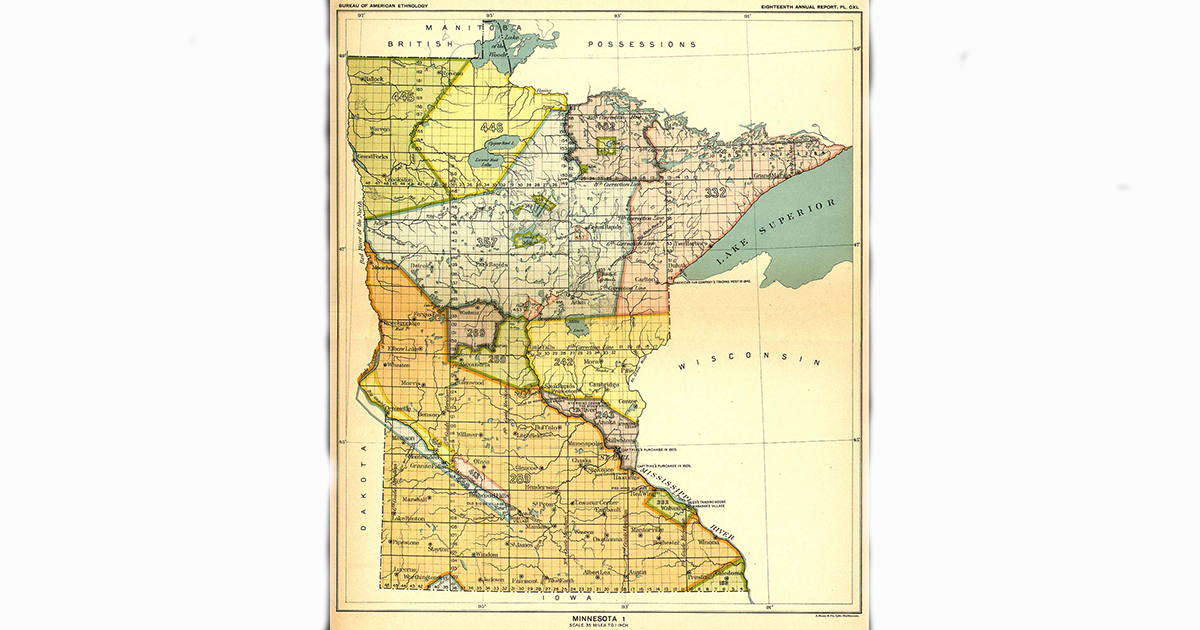Land Acknowledgments, Land Back, and the 10,000 Lakes: Indigenous History in Minnesota
-
-
Thursday, August 11, 2022
7 pm – 8:30 pm
-
Thursday, August 11, 2022
- Online event

Increasingly popular, land acknowledgments can be heard at the start of meetings to introductions of large sporting events, but what does this acknowledgment signify? Whose land is being acknowledged? How did relationships to this land transform over time? What is the connection of the land back movement?
Today within the physical boundaries of the State of Minnesota exist seven Ojibwe band reservations, four Dakota communities, as well as thousands of Indigenous individuals living in small towns to large urban communities. Understanding how this modern-day configuration came to be is an important element of understanding the making of Minnesota. Indigenous history is Minnesota history.
From early interactions between Dakota and Ojibwe Native nations to recent calls for economic, social, and environmental justice for Indigenous communities, this live presentation with Dr. Jacob Jurss will survey the early history of interactions between Indigenous nations through the treaty era with the United States through the contemporary moment seeking to better understand how our collective past continues to shape our future.
Dr. Jacob Jurss is an adjunct professor of U. S. and Indigenous history at the University of St. Thomas and Metro State University, and was a member of the St. Thomas Land Acknowledgment committee. His recently published article in The American Indian Quarterly, “Relations Across the Land: Ojibwe and Dakota Interactions in the Indigenous Borderlands of the Western Great Lakes” explores the history of intertribal diplomacy, and his currently book project is Bountiful Boundaries: Western Great Lakes Indigenous Borderlands and American Statecraft.
Free and open to all. Presented by East Side Freedom Library, Ramsey County Historical Society, and Roseville Library. For questions, please email events@rchs.com
